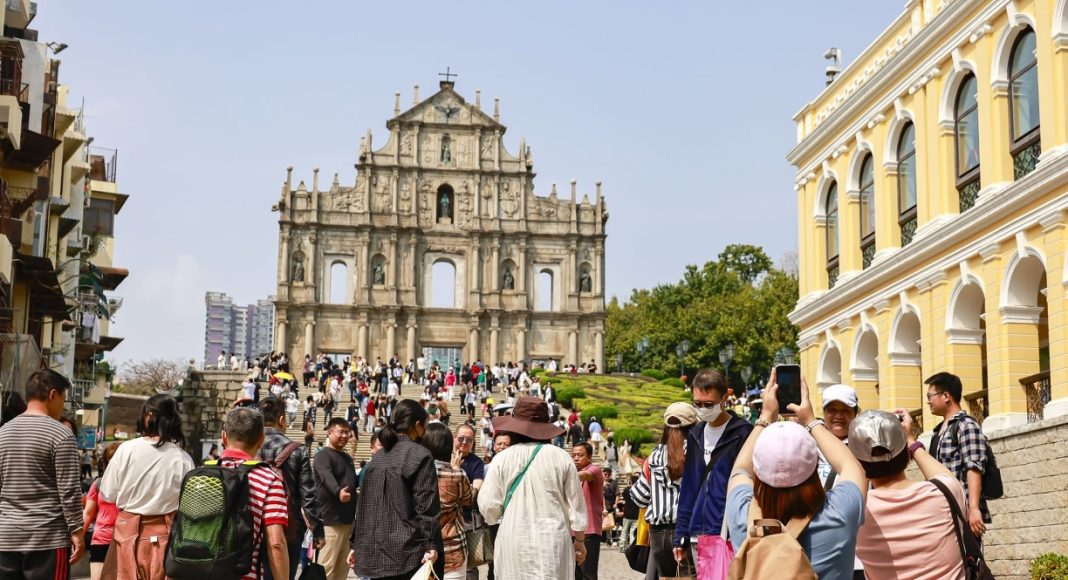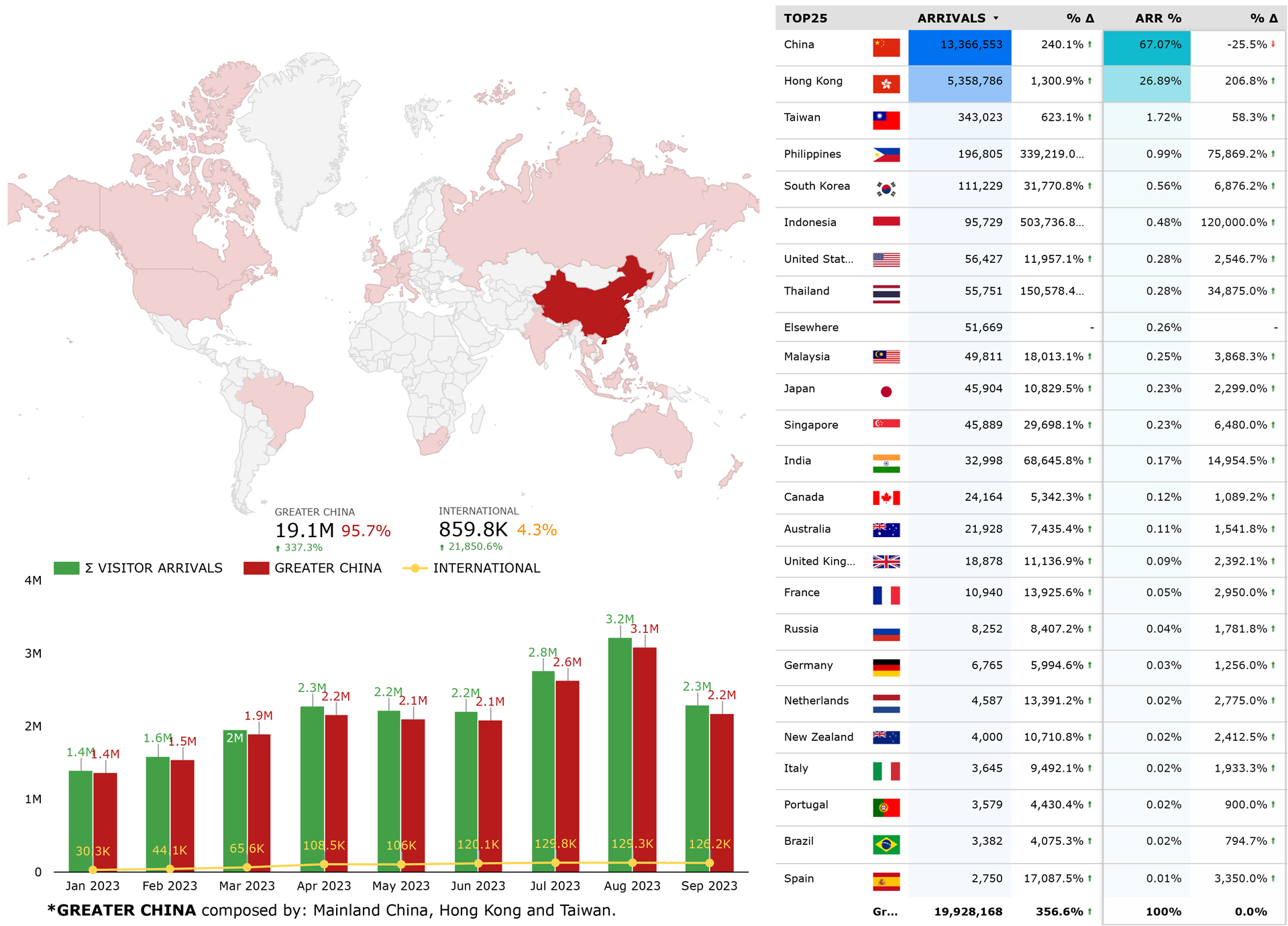Although Macau’s economic diversification plan for the next five years holds few surprises for the public, some of the announced measures have received positive feedback.

Nelson Kot, the president of the Macau Comprehensive Social Research Association, lauds the increased budget for attracting foreign tourists, stating: “Finally, the government understands where it needs to work hard.”
The Macau government announced on Wednesday that it is expecting to spend approximately MOP235 million ($29.19 million) in next year’s budget to attract foreign tourists. This comes as the Asian gaming hub continues to be heavily dependent on the mainland Chinese market.
In an interview with AGB, the expert points out that Macau needs to determine why the city has a low percentage of foreign tourists, especially from Asian countries with direct flights to Macau.
According to data from the Macau Government Tourism Office (MGTO), from January to September 2023, less than 5 percent of visitors to the territory arrived from outside Greater China (mainland China, Hong Kong, and Taiwan).
In this context, Kot notes that attracting Chinese tourists is an “effortless” task, as the “Macau government needs to maintain good communication with Beijing.” He also recalls that during the COVID-19 pandemic, the Chinese government approved the resumption of tour groups to Macau, including citizens from four provinces and one city in 2022.
Additionally, Kot believes that the demand for adding more non-gaming activities by gaming operators, such as MICE, concerts, and sports events, is the “key to luring more foreigners.”
However, he observes that there are still many challenges ahead, as Macau is “very limited by its small space and the lack of qualified workers.”
“To achieve the goal of becoming the World Center of Tourism and Leisure, Macau needs to build more attractions aimed at maintaining its dynamics,” he said.
According to the five-year plan for the city’s economic diversification, the gaming industry is expected to account for only 40 percent of Macau’s gross domestic product (GDP) by 2028, as the SAR government aims to increase the weight of non-gaming sectors to 60 percent.
Kot stresses that the government has set up many plans, but some are unlikely to be realistic. “We need to be very clear: Macau has no resources to support the development of other pillar industries. I agree with what (Chinese president) Xi Jinping said during his visit to Macau. Instead of increasing its dimensions, Macau needs to focus on quality.”
The five-year development plan also reveals that the Macau Airport expansion is expected to be completed by 2023, increasing its capacity to 13 million passengers.
But aside from incoming routes, local transportation is key, with Kot noting that the taxi service is more urgent than infrastructure. “To reduce dependence on gaming, we need to invest more in services and offer better experiences. As we aim to attract more tourists, transportation is the main problem to resolve.”
Currently, Macau has only 1,622 taxis, of which 1,322 are regular taxis (black taxis), and 300 are special taxis. Special taxis can only be hailed using a telephone, website, or mobile app.
Macau’s Transport Bureau announced the issuance of 500 taxi licenses last month, which are still under the bidding process.












